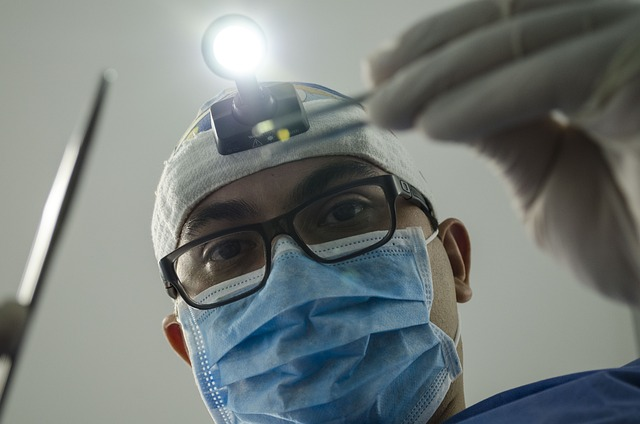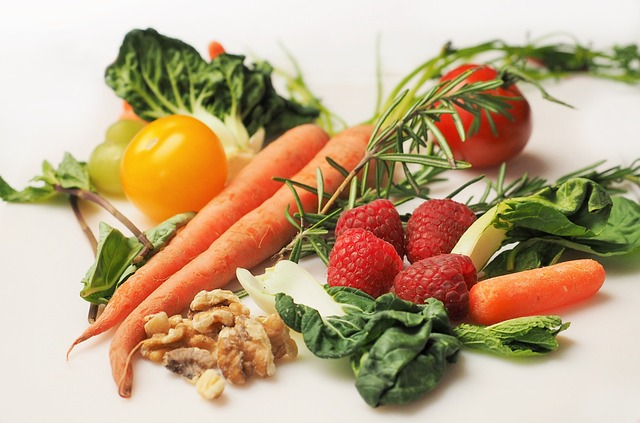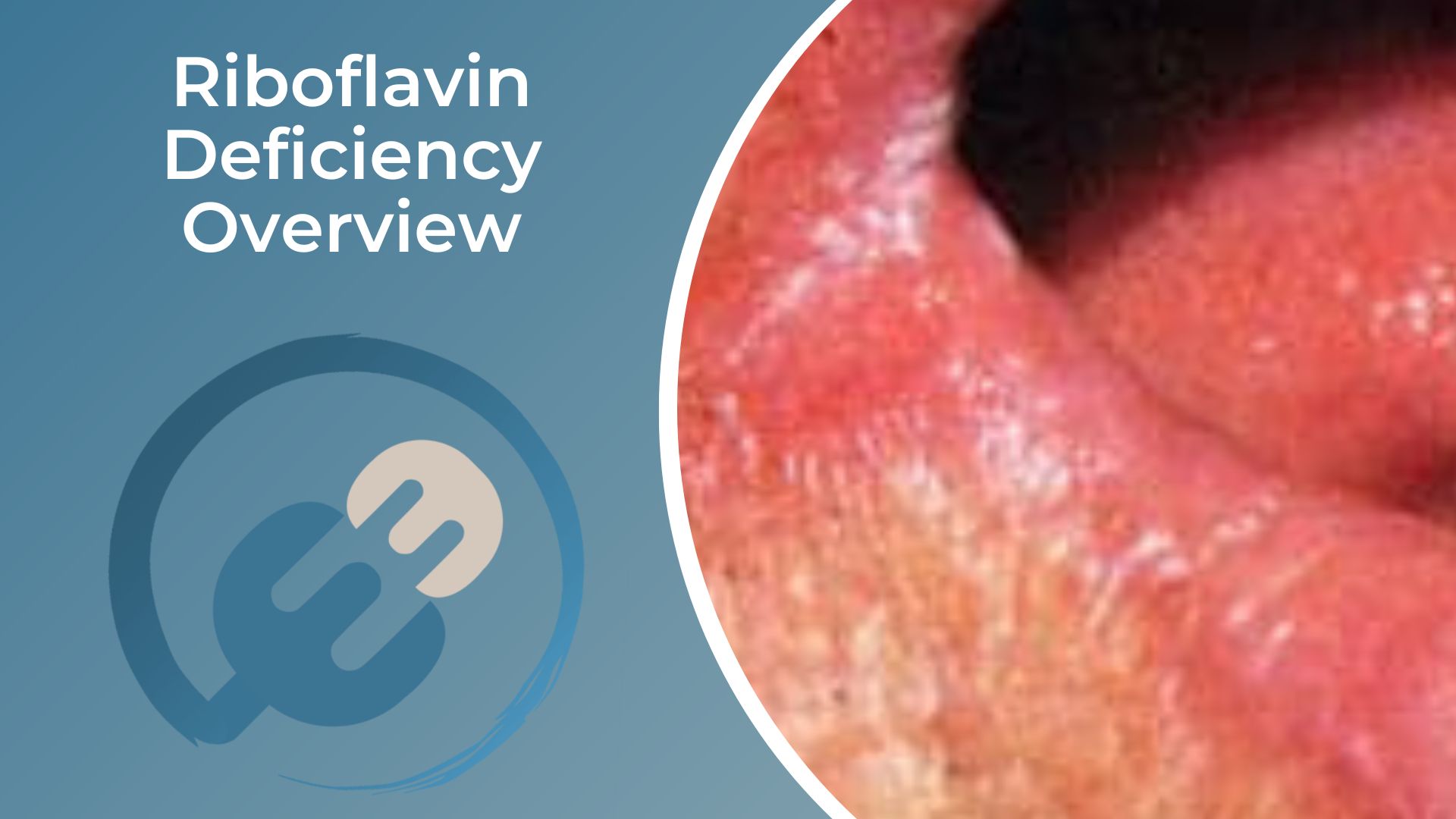Do you ever feel like your energy levels are lacking, or that you just can’t concentrate no matter how hard you try?
It might be more than just fatigue – it could be a riboflavin deficiency. Riboflavin is an essential nutrient needed by the body to function optimally – without enough of it, we may not have the energy and focus to accomplish our daily tasks.
In this blog post, we’ll take a look at what riboflavin is, why it’s so important for our health and wellbeing, and what happens when there isn’t enough of it in our bodies.
We’ll also discuss the clinical features of riboflavin deficiency (ariboflavinosis) and how to prevent or treat its symptoms. Read on to learn more about this often-overlooked but vital nutrient!
Recommended Intakes

The recommended dietary allowance (RDA) for riboflavin is 1.3-1.7 mg per day for adults, depending on age and sex.
Women who are pregnant or breastfeeding may need more riboflavin, so it’s important to check with a healthcare provider if needed.
Good sources of riboflavin include meat, eggs, dairy products, nuts and seeds, as well as fortified foods like breakfast cereals and some whole grain breads and pastas.
Clinical Manifestations
Riboflavin deficiency can have a number of adverse effects on our health and wellbeing, including:
• Fatigue and exhaustion
• Poor concentration and mental fatigue
• Cracking or soreness around the corners of the mouth
• Inflammation of the tongue
• Sore throat
• Itchy, burning eyes
• Hair loss or brittle hair
Clinical Features of Deficiency (Ariboflavinosis)

Riboflavin is an important nutrient that helps keep us healthy, energized, and focused. Without enough riboflavin in our diets, we can experience a range of adverse effects on our health and well-being.
The recommended dietary allowance (RDA) for riboflavin is 1.3-1.7 mg per day for adults, depending on age and sex. Women who are pregnant or breastfeeding may need more riboflavin, so it’s important to check with a healthcare provider if needed.
Sources of riboflavin include meat, eggs, dairy products, nuts and seeds, as well as fortified foods like breakfast cereals and some whole grain breads and pastas.
One of the most common clinical manifestations of riboflavin deficiency is fatigue and exhaustion due to the body not having enough energy to function properly.
Other symptoms include poor concentration and mental fatigue, cracking or soreness around the mouth, inflammation of the tongue, sore throat, itchy or burning eyes, hair loss or brittle hair.
If left untreated or unrecognized for an extended period of time, these symptoms can worsen to cause even more serious health complications such as anemia and skin disorders.
Studies have also shown that inadequate levels of riboflavin may be linked to increased risk factors for certain chronic illnesses such as cardiovascular disease or diabetes.
It’s believed that this occurs because inadequate levels of riboflavin can lead to higher oxidative stress in the body which can damage cells over time resulting in a weakened immune system.
Fortunately there are ways to prevent or treat the symptoms associated with ariboflavinosis (riboflavin deficiency). Increasing one’s intake of foods rich in riboflavin (meat, eggs etc.), taking multivitamin supplements with high concentrations of vitamin B2 (riboflavin), exposing oneself to sunlight on a regular basis (which increases vitamin production) are all ways one can ensure they are getting enough riboflavin in their diet.
In addition to this, engaging in regular exercise has been found to increase one’s absorption rate of riboflavin from food sources as well as promote better overall physical fitness which contributes towards better overall health outcomes throughout one’s life span.
Ultimately, riboflavin is an essential nutrient that helps keep us healthy and energized. While a deficiency of this important vitamin can have adverse effects on our health and wellbeing, the good news is that it’s relatively easy to get enough riboflavin in our diets through food sources or supplements, making it easier for us to stay healthy and strong.
Riboflavin and Healthful Diets

Riboflavin is an essential nutrient which plays a vital role in maintaining our health and wellbeing. Not only does it help to keep us energised and alert, but also helps protect against certain chronic illnesses such as cardiovascular disease, diabetes, and more.
Eating a well-balanced diet that includes foods rich in riboflavin can ensure we have adequate levels of this important vitamin in our bodies for optimal health.
Including riboflavin-rich foods in our diets can help to improve overall energy levels, mental clarity, and physical stamina. It can also aid in the prevention of fatigue and exhaustion due to its role in helping to create energy from food. Furthermore, it’s been shown to have protective effects against certain age-related diseases as well as boosting the immune system.
Healthful diets should include a variety of different sources of riboflavin such as meat (beef, chicken, pork), eggs, dairy products (milk, cheese), nuts (almonds, pecans), seeds (sunflower seeds), fortified breakfast cereals and whole grain breads/pastas – all of which are excellent sources of this important vitamin. In addition to its natural form found within food sources, riboflavin can also be taken as a supplement either on its own or with other B vitamins.
For vegetarians/vegans who may not consume many animal products that contain riboflavin naturally there are still options available including soy milk, legumes (beans/lentils), green leafy vegetables (spinach/kale), almonds, whole grains (oats/brown rice) and fortified cereals which all provide ample amounts of this essential nutrient.
In order for your body to absorb the maximum amount of riboflavin from your diet it is recommended that you exercise regularly as this has been shown to increase the absorption rate from dietary sources significantly.
Regular sun exposure is another effective way to boost your intake of Vitamin B2 since sunlight helps stimulate production within the body.
Finally it’s important to note that although most people consume adequate amounts of riboflavin through their diets without issue there are some groups who may need more than usual due to increased needs or lifestyle choices – pregnant women breast feeding mothers and vegetarians/vegans being just some examples.
If you fall into one of these categories then it is recommended you speak with a healthcare professional about how best to meet your individual requirements for optimal nutrition.
Dietary supplements
It’s also an option for those looking to ensure they are getting enough riboflavin in their diet. While foods sources of riboflavin should be the primary source, supplementing with vitamin B2 can help cover any potential deficiencies or increased needs that may arise over time.
When considering a supplement it’s important to make sure it contains at least 15mg per serving as this is the recommended daily intake amount set by the World Health Organization.
Supplements should only ever be taken in addition to eating a balanced diet and not as an alternative.
By taking care to include healthy sources of riboflavin in our diets and engaging in regular exercise we can ensure we are getting all the vitamins and minerals our bodies need throughout life, helping to maintain our health and wellbeing for years to come.
No matter what your lifestyle choices, Riboflavin plays an important role in keeping us healthy and balanced. With its multiple health benefits, it is essential to make sure we are getting enough of this important vitamin.
By eating a nutritious diet that includes riboflavin rich foods or taking a supplement when necessary, you can ensure your body has all the vitamins and minerals it needs for optimal health.
Health Risks from Excessive Riboflavin
Although Riboflavin is an important part of a healthy diet, it’s important to consume it in moderation as taking too much can lead to health risks.
Excessive intake can cause issues such as nausea, vomiting, and diarrhea. It may also interfere with the absorption of other vitamins and minerals like iron, zinc, copper, and magnesium.
It’s recommended that adults do not exceed 35mg of riboflavin per day. If you are taking supplements or eating fortified foods it’s important to check their labels for their exact vitamin B2 content so you know how much you’re consuming each day.
By ensuring that your daily intake stays within the recommended guidelines you can ensure that your body has all the nutrients it needs without putting you at risk of health risks associated with excessive consumption.
Summary
Riboflavin, or Vitamin B2, is an essential micronutrient for optimal health and wellbeing. It’s important to make sure we are getting enough of this important vitamin, whether through natural dietary sources or by supplementing if needed.
Regular physical activity and sun exposure can also boost the absorption rate from dietary sources significantly.
Pregnant women, breastfeeding mothers, and vegetarians/vegans may need more than usual due to increased needs or lifestyle choices.
If you fall into one of these categories it is recommended to speak with a healthcare professional. Dietary supplements are also an option for those looking to ensure they are getting enough riboflavin in their diet, however supplements should only ever be taken in addition to eating a balanced diet and not as an alternative.
It’s highly important to keep consumption within the recommended daily intake amount set by the World Health Organization; adults should not exceed 35mg of riboflavin per day.



